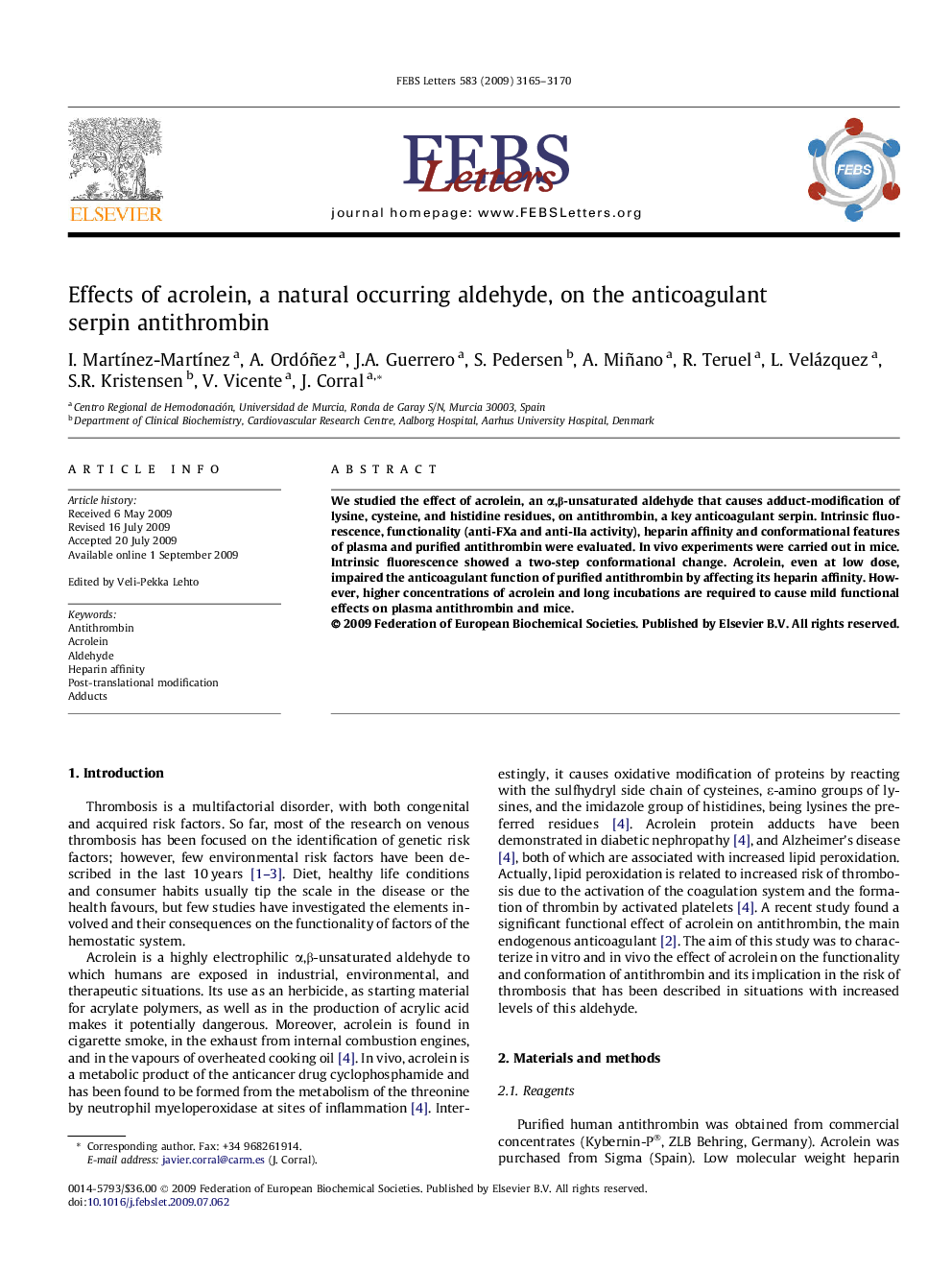| Article ID | Journal | Published Year | Pages | File Type |
|---|---|---|---|---|
| 2049646 | FEBS Letters | 2009 | 6 Pages |
Abstract
We studied the effect of acrolein, an α,β-unsaturated aldehyde that causes adduct-modification of lysine, cysteine, and histidine residues, on antithrombin, a key anticoagulant serpin. Intrinsic fluorescence, functionality (anti-FXa and anti-IIa activity), heparin affinity and conformational features of plasma and purified antithrombin were evaluated. In vivo experiments were carried out in mice. Intrinsic fluorescence showed a two-step conformational change. Acrolein, even at low dose, impaired the anticoagulant function of purified antithrombin by affecting its heparin affinity. However, higher concentrations of acrolein and long incubations are required to cause mild functional effects on plasma antithrombin and mice.
Related Topics
Life Sciences
Agricultural and Biological Sciences
Plant Science
Authors
I. Martínez-Martínez, A. Ordóñez, J.A. Guerrero, S. Pedersen, A. Miñano, R. Teruel, L. Velázquez, S.R. Kristensen, V. Vicente, J. Corral,
